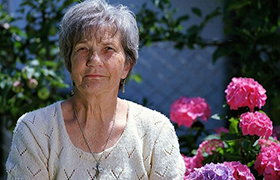Fооdѕ tо аvоіd if уоu'rе over 60+
Senior people are in more danger of experiencing food poisoning. Also, some foods have more possibility of triggering food poisoning compared to others. Below are suggestions on the foods to steer clear of or handle with care when you are more than 60.
Some foods can lead to food poisoning if they are tainted with some bugs. Majority of healthy individuals heal from food poisoning without medicine. But, you are particularly susceptible to an onset of acute (even fatal) food poisoning if you are more than 60. The reason is that your immune system does not have enough strength compared to a younger person’s and it is more difficult for your body to resist germs.
Food poisoning is not just irritating; however, the signs in people who are more than 60 are usually worse in younger individuals and can cause severe complications like dehydration. People who are older can also take more time to heal from food poisoning. If you experience food poisoning signs, get medical assistance immediately.
Below are foods to beware of:
(This advice is also applicable to any person whose immune system is weak, including expectant women, infants, and individuals with an existing health issue and young kids).



Certain soft cheeses
It is wise to avoid consuming soft cheese, which is mold-ripened, for instance, Camembert and Brie, together with soft blue cheeses like Gorgonzola, Danish blue and Roquefort and soft cheeses that are unpasteurized.
It can be dangerous to eat these cheeses when you age as their acidity might be lower and consist of extra moisture compared to hard cheeses. It makes them the best surrounding for food-poisoning bugs, especially listeria, to develop in. Cooked Soft cheeses are okay as heat eliminates the bacteria.
Pâté
Make an effort to avoid all kinds of chilled or fresh рâté such as vegetable рâtés since they have listeria. Tinned рâté is safe, as it will have experienced a heat treatment as a section of the canning procedure.
Runny or raw eggs
Eggs presented under the British Lion Code of Practice are harmless to eat when uncooked or half-cooked (runny). These eggs’ shells have the logo of a red lion stamped on them.
But individuals whose immune system is weak and follow special diets need to cook food well (until the yolks and whites solidify). Keep away from any eggs that are not presented under the lion code if they are uncooked or if you partially cook them and any foods consisting of them, like homemade hollandaise or mayonnaise sauce. The reason is that they raise the danger of you experiencing salmonella food poisoning.
Ensure that eggs that lack the lion code are cooked very well until the yolks and whites become hard. You should cook quail eggs, goose eggs, and duck eggs until the yolk and whites become firm.

Cold meats
A lot of cold meats like prosciutto, salami, pepperoni, and chorizo are merely cured and fermented, rather than cooked. Therefore, they have the risk of having toxoplasmosis that triggers parasites. The best thing is to examine the guidelines on the pack to check whether the product is ready to consume or require cooking first.
For meats that are ready-to-eat, you need to lessen any danger from parasites by freezing fermented or cured meats at home for four days before you consume them. Freezing eliminates most parasites and therefore makes the beef more harmless to eat.
If you intend to cook the meat, (for example pepperoni on pizza), it is not necessary for you to freeze it first. If you are having a meal in a restaurant that sells cold meats that are cured or fermented, they might not have undergone freezing. In case you are worried, confirm from the staff or do not eat it.
Raw or partly cooked poultry and meat
Take precautions at barbecues. Rare or partially cooked meat, particularly sausages, burgers, and chicken can contain food poisoning bugs like campylobacter, salmonella, and E.coli.
Ensure that you cook poultry or meat thoroughly, so there is no sign of blood or pink. Also, do not forget to wash your hands as well as all surfaces in the kitchen and knives after preparing raw poultry or meat to avoid the spread of any dangerous bugs. Read below why you need to avoid ever washing chicken as well as many other hygiene tips for the kitchen.



Raw shellfish
Fresh seafood (like lobster, mussels, prawns, lobster clams and scallops) can consist of dangerous viruses and bacteria, which can lead to food poisoning. Cooked shellfish is harmless and so are cold prawns that are pre-cooked.
Sushi
Sushi and other meals prepared with raw fish are okay so long as you had frozen them earlier. The reason is that at times fish have small parasitic worms that can make you sick; however, freezing eliminates the worms, making the fish harmless to eat.
Sushi sold in shops is mainly ‘purchased in’ and so harmless to consume, as it will have been frozen correctly beforehand. If you prepare your sushi in the house, freeze the fish at least four days before using it.
Milk
Avoid drinking raw milk that is unpasteurized. Instead, just take UHT (ultra-heat treated) or pasteurized milk. At times it is referred to as long-life milk. The truth is that all the milk that shops and supermarkets sell is pasteurized or UHT; you can just purchase unpasteurized milk straight from farm shops, farms and at farmers’ markets that have been registered
Bean sprouts
Be wary of raw or partly cooked bean sprouts because they have the potential to cause food poisoning. The warm, wet surroundings needed to develop sprouts are conducive to the fast multiplication of germs. Therefore, ensure that all sprouted seeds are cooked very well until they become steaming hot all through before consuming them.





